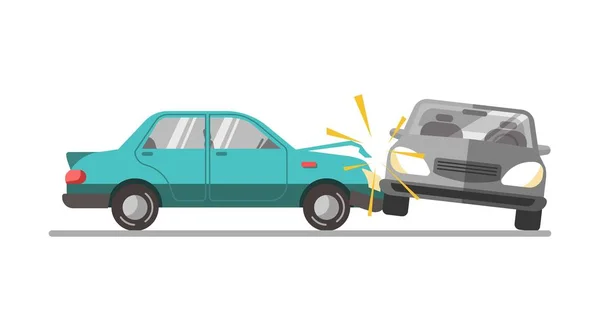
There’s a ripple effect in life. A small pebble dropped in a pond can cause ripples far and wide. Similarly, a car accident, even if it’s not your fault, can set off a chain reaction in your life, especially regarding insurance premiums. How does an accident impact the cost of insurance? Consulting professionals like this Las Vegas personal injury law firm can provide clarity if you ever find yourself in such a situation. But for now, you should dive into the nitty-gritty of insurance premiums post-accident.
Understanding Insurance Premiums
Insurance premiums are like the regular fees you pay to ensure a safety net when things go wrong, like buying tickets for a carnival ride. These fees help you stay financially protected in case of accidents. Several factors influence the amount you pay for premiums, including your driving history, vehicle type, and where you live. Understanding how these factors affect your premium is the first step in comprehending how it might change after an accident.
At-Fault vs. Not-At-Fault Accidents
Determining who’s responsible for an accident is crucial in the world of insurance. If you’re found at fault, it’s like getting a red card in a soccer game – it comes with consequences, which might include an increase in your premium. However, if you’re not at fault, the increase in your premium might be less severe or not happen at all. Knowing how fault affects your premium can help you prepare for potential changes based on accident investigations.
The Role of Claims
Think of insurance claims as making calls to the insurance company’s helpline. When you file a claim after an accident, the company has to pay for repairs and damages. Like a seesaw, when their expenses go up, your premiums might go up too. This is why it’s important to consider the necessity of claims carefully and understand how they can impact your future premium costs.
Additionally, the claims process involves thoroughly evaluating the accident and the damages incurred. Insurance adjusters play a crucial role in assessing the extent of the loss and determining the amount of compensation that should be provided. The outcome of this assessment can have a direct impact on your insurance premiums.
The Dreaded ‘First Accident’ Conundrum
Just like the first scratch on a brand-new phone stings the most, the same can happen with insurance. Many insurance companies offer accident forgiveness for long-term clients, but that first accident can still lead to a significant premium increase. Knowing how insurers often treat first-time accidents differently can help you prepare for potential rate increases and encourage you to focus on safe driving practices, especially if you’re a new policyholder.
Duration of Premium Increase
The good news is that a premium increase is not forever. Typically, the increase lasts for three to five years. After this period, with continued safe driving practices, you can expect your premiums to go back down. Recognizing that these increases are temporary can provide perspective and motivate you to maintain safe driving habits during this time.
During this period of premium increase, it’s vital to maintain your focus on safe driving practices and avoid any further accidents. A clean driving record is one of the most effective ways to ensure your premiums return to lower rates after the temporary increase.
Ways to Mitigate the Increase
Don’t lose hope after an accident; there are ways to reduce the impact on your premiums, much like finding shortcuts in a maze. Consider options like taking defensive driving courses or choosing higher deductibles. It’s a good idea to discuss these possibilities with your insurance provider. Exploring strategies to lessen premium increases empowers you to manage your insurance costs proactively.
The Bigger Picture: Multiple Accidents
While one accident can be seen as a misfortune, multiple accidents create a pattern. Insurance companies view frequent accidents as signs of a high-risk driver, much like a teacher noticing repeated tardiness. Multiple accidents in a short period can significantly increase your premiums. Recognizing the compounding effect of multiple accidents emphasizes the importance of safe driving practices and accident prevention.
Understanding Your Policy and Rights
Just as sailors must understand the winds and tides, drivers must comprehend their insurance policies. Knowing the details of your policy can help you navigate premium increases after an accident. If you’re unsure, seek advice from a professional or trusted advisor. Being well-informed about your insurance policy empowers you to make decisions based on knowledge and ensures you know your rights and options following an accident.
Car accidents can be stressful, both emotionally and financially. While the aftermath can see a shift in insurance premiums, understanding the reasons behind the changes can make the journey smoother. Remember, like any storm, this too shall pass, and with informed choices, one can hope to steer their premium ship back to calmer waters.

